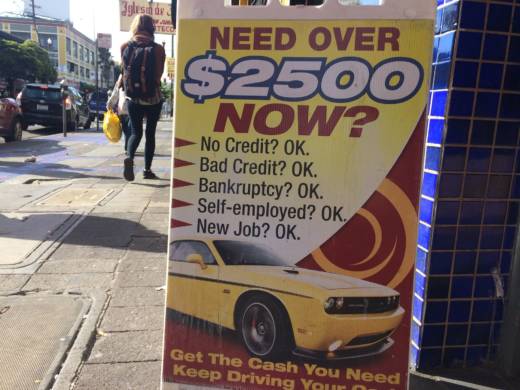Payday and car-title lenders must issue loans only to consumers who demonstrate they can afford them, much like banks and other financial institutions do, according to a nationwide rule issued this week by the Consumer Financial Protection Bureau (CFPB).
The new rule, which applies to loans that require all or most of the debt to be paid at once, will force lenders to check a borrower's ability to repay a loan — and still meet basic living expenses — before issuing that credit.
Bay Area lawmakers and California Attorney General Xavier Becerra welcomed the new regulations, which do not go into effect until the summer of 2019.
“I applaud the Consumer Financial Protection Bureau for taking action today to rein in abusive payday loan vendors," said Becerra in a statement. "Sadly, many of these businesses make money by preying on the most vulnerable — hardworking men and women, families with young children, seniors, and people with disabilities."
Borrowers often give permission to payday lenders to take repayments straight from their bank accounts. But lenders can charge payments even when the account is empty, which can rack up overdraft fees for the consumer. The CFPB's new rule will also limit a lender's ability to dip into a borrower's bank account after two unsuccessful attempts, a move that could help consumers avoid those overdraft fees.
